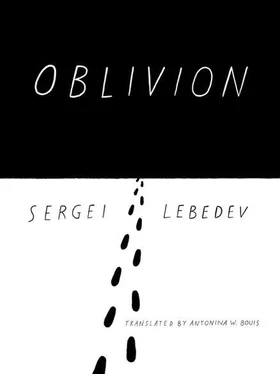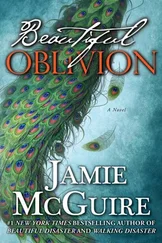I was picked up by a fishing trawler; the force of the pendulum dragged me from north to south, through trains, stations, airports, buses—to the shore of the Atlantic, near the edge of Africa; within me the march of time was reversed, unspooled, unwound, I was crumpled and tossed; and now I stand at the boundary of Europe and begin the return trip—in words.
“An important book about where Russia is today, with poetic descriptions and unforgettable images evoking that nation’s often elusive attempts to understand its dark past. I stand in awe of both the author and translator.”
—Jack F. Matlock, Jr., former U.S. Ambassador to the Soviet Union
“The subject matter of Oblivion is the eerie frozen landscape scattered with the human detritus of an inhuman bygone era. What brings it back from oblivion is the author’s exceptional power of language. A haunting read.”
—Michael Zantovsky, former press secretary to Czech President Vaclav Havel, author of
Havel: A Life and former Czech Ambassador to the United States, Britain and Israel
“Beautifully written, haunting and unputdownable. A masterpiece novel which relates the horrors of Russia’s unburied Soviet past through the eyes of a man revisiting—and filling in the gaps in—his half-understood childhood.”
—Edward Lucas, senior editor,
The Economist and author of
The New Cold War: Putin’s Russia and the Threat to the West
“Packs a wicked emotional punch through fierce poetic imagery… Lebedev takes his place beside Solzhenitsyn and other great writers who have refused to abide by silence… Courageous and devastating.”
—
Kirkus Reviews (Starred review)
“Opening in stately fashion and unfolding ever faster with fierce, intensive elegance, this first novel discloses the weight of Soviet history and its consequences… Highly recommended for anyone serious about literature or history.”
—
Library Journal (Starred review)
“An extraordinary book that takes readers across Russia’s desolate northern landscape and turns up secrets about the terrible legacy of the Soviet gulags, described through evocative, often poetic portraits of people and places.”
—Celestine Bohlen,
International New York Times columnist and former Moscow correspondent for
The New York Times
“Extraordinarily intense and beautifully written … Oblivion haunts this novel. By writing it, Lebedev has given the past a present and a presence.”
—Judy Dempsey, senior associate at Carnegie Europe and editor-in-chief of
Strategic Europe
“Sergei Lebedev’s debut novel is a haunting tale about the loss of national memory and its moral consequences for the individual.”
—Solomon Volkov, author of
Shostakovich and Stalin ,
St. Petersburg: A Cultural History , and
The Magical Chorus: A History of Russian Culture from Tolstoy to Solzhenitsyn
“ Oblivion is the poetic monologue of a post-Soviet flâneur reflecting on the nation’s grim past. Pastoral vignettes about peaceful dacha life quickly morph into a novelistic version of Edvard Munch’s ‘The Scream’.”
—Serguei A. Oushakine, Professor of Anthropology and Slavic Languages and Literatures, Princeton University
“A monomaniacal meditation on memory and forgetting… Lebedev’s magnificent novel has the potency to become a mirror and a wake-up call to a Russia that is blind to history.”
—
Neue Zürcher Zeitung
“Sergei Lebedev opens up new territory in literature. Lebedev’s prose lives from the precise images and the author’s colossal gift of observation.”
—
Der Spiegel
“The beauty of the language is almost impossible to bear. The novel luxuriates in poetic language.”
—
Frankfurter Allgemeine Zeitung 
Also from New Vessel Press

THE 6:41 TO PARIS BY JEAN-PHILIPPE BLONDEL
Cécile, a stylish 47-year-old, has spent the weekend visiting her parents outside Paris. By Monday morning, she’s exhausted. These trips back home are stressful and she settles into a train compartment with an empty seat beside her. But it’s soon occupied by a man she recognizes as Philippe Leduc, with whom she had a passionate affair that ended in her brutal humiliation 30 years ago. In the fraught hour and a half that ensues, Cécile and Philippe hurtle towards the French capital in a psychological thriller about the pain and promise of past romance.
http://newvesselpress.com/books/the-641-to-paris/

ON THE RUN WITH MARY BY JONATHAN BARROW
Shining moments of tender beauty punctuate this story of a youth on the run after escaping from an elite English boarding school. At London’s Euston Station, the narrator meets a talking dachshund named Mary and together they’re off on escapades through posh Mayfair streets and jaunts in a Rolls-Royce. But the youth soon realizes that the seemingly sweet dog is a handful; an alcoholic, nymphomaniac, drug-addicted mess who can’t stay out of pubs or off the dance floor. On the Run with Mary mirrors the horrors and the joys of the terrible 20th century.
http://newvesselpress.com/books/on-the-run-with-mary/

THE LAST WEYNFELDT BY MARTIN SUTER
Adrian Weynfeldt is an art expert in an international auction house, a bachelor in his mid-fifties living in a grand Zurich apartment filled with costly paintings and antiques. Always correct and well-mannered, he’s given up on love until one night—entirely out of character for him—Weynfeldt decides to take home a ravishing but unaccountable young woman and gets embroiled in an art forgery scheme that threatens his buttoned up existence. This refined page-turner moves behind elegant bourgeois facades into darker recesses of the heart.
http://newvesselpress.com/books/the-last-weynfeldt/

ANIMAL INTERNET BY ALEXANDER PSCHERA
Some 50,000 creatures around the globe—including whales, leopards, flamingoes, bats and snails—are being equipped with digital tracking devices. The data gathered and studied by major scientific institutes about their behavior will warn us about tsunamis, earthquakes and volcanic eruptions, but also radically transform our relationship to the natural world. Contrary to pessimistic fears, author Alexander Pschera sees the Internet as creating a historic opportunity for a new dialogue between man and nature.
http://newvesselpress.com/books/animal-internet/

THE LAST SUPPER BY KLAUS WIVEL
Alarmed by the oppression of 7.5 million Christians in the Middle East, journalist Klaus Wivel traveled to Iraq, Lebanon, Egypt, and the Palestinian territories to learn about their fate. He found a minority under threat of death and humiliation, desperate in the face of rising Islamic extremism and without hope their situation will improve. An unsettling account of a severely beleaguered religious group living, so it seems, on borrowed time. Wivel asks, Why have we not done more to protect these people?
Читать дальше


















